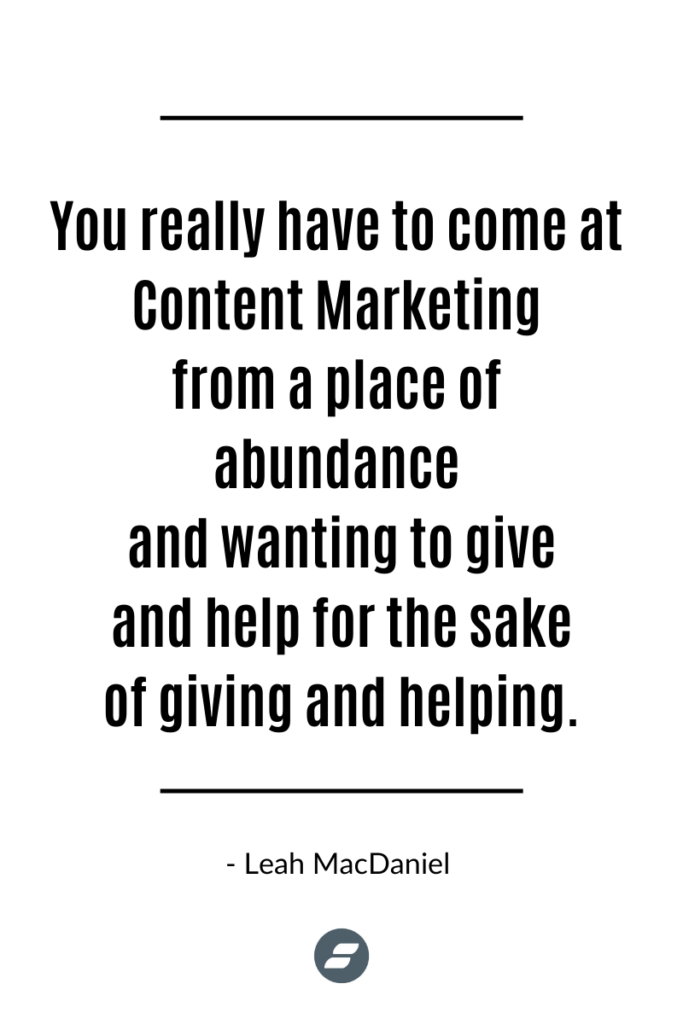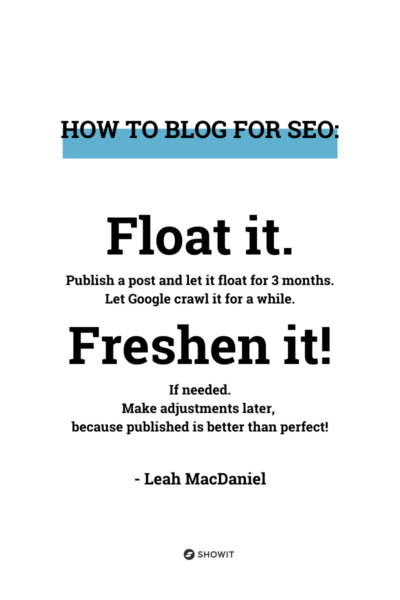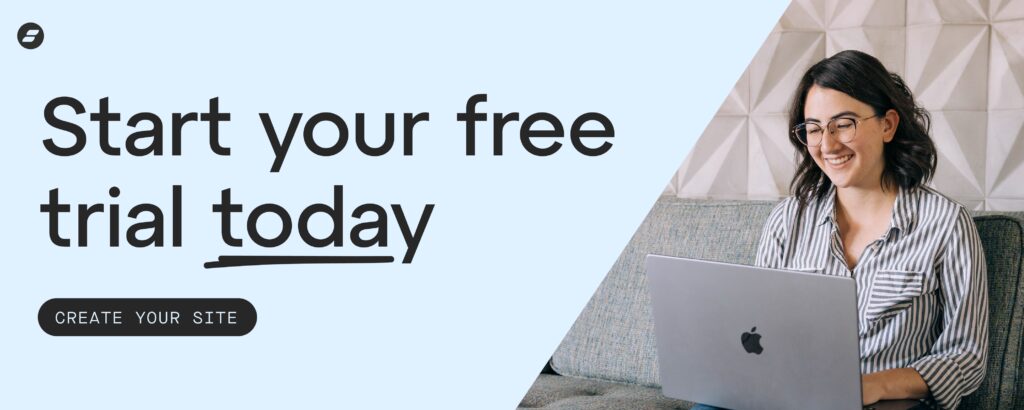Load Newsreader Bold Font
What's the reason most people put off blogging? OVERWHELM! Blogging for SEO seems to be a mystical thing only to be understood by wizards and unicorns. But that is not the case. Anyone can write blogs, and make them rank highly on search engines!
You don't have to be a good writer either! Once you have your 3 step process down, you will be a blog machine! Here are Till's SEO Expert, Leah MacDaniel with Blogging for SEO .
Start with the 3-Step Process:
- Organize Your Ideas and Topics – Don't let your content creep off-topic. With your chosen queries right there, you always know what to focus on.
Checked al
Great! - 2
PLACE KEYWORDS
STRATEGICALLY
Outlining your headings not anly allows you to be strategic with your keyword placement, but also makes your writing easier!
HITPSQUICKSTART TILLAGENCY/
The Ultimate Blog Post Template to Improre Your SEO - 3
PRE•PUBLICATION
CHeCKLIST
Don't worry about whether you missed anything important. From your URL slug to your meta description, write everything you need for great SEO
What to do for great blogging SEO
Do great topic research with Keywords Everywhere
Doing great topic research doesn't have to be complicated or expensive. You don't need one of those fancy expensive pro-level subscription tools or an extensive knowledge of search trends. My favorite way of doing topic research involves a few free or nearly free tools and basically no learning curve. So the first thing here is Keywords Everywhere and it is just a free browser plugin.
I use it on Chrome. I'm pretty sure it works with other browsers, but I'm not positive. So that's a thing that you would want to check on, but I have to assume that it does. You do have to purchase credits, but they're super cheap. I think one credit equals one keyword and I think it's like $10 gets you a hundred thousand credits.
So $10 usually lasts me like six months with everyday professional use. It's basically free. They're super cheap. Once you have Keywords Everywhere set up and turned on, it delivers information on the search volume. The level of competition or difficulty and search trends, right on your Google search page, which I'll show you in a second.
Prioritizing Your Topics Using Data
- SEARCHER INTENT- Know what kinds of answers Google is showing for your given topic and queries. Can you create the kind of content Google wants to show?
- COMPETITIVE ANALYSIS – Read the top 3-5 SERP results for your query. What are they doing well? Are you able to write content that is better? If not, move on!
- MAXIMIZE SEARCH VOLUME – Higher search volume means more potential eyeballs on your content each month. Queries with very low relative search volume may not be worth the effort required to create high-quality content.
- MINIMIZE COMPETITION – Look for a sweet spot of keywords or queries that have a higher search volume and a lower competition score
- ASSESS YOUR CONTRIBUTION – Are you able to improve upon the information available or add to the conversation? Can you provide a better answer to the searcher's query?
- PATH OF LEAST RESISTANCE – Is there a topic you are more excited to write about? Or one that you could easly taik at length about without having to do much research? Consider what will be the easiest for you to create.
Blogging for SEO tips:
- Topic Research Made Easy
- How To Prioritize Topics
- What “Providing Value” Really Means
- Outlining For Success (Complete with a free template!)
- Why Published Is Better Than Perfect
What blogging is NOT
When I say blogging, I'm not talking about writing for no real reason. Some stories are great and can be a really good way of engaging with your audience and letting your customers get to know you, but they're probably not going to do much for your SEO.
So the first thing that isn't SEO friendly is sharing personal stories from my life or experiences for the sole purpose of being entertaining or helping readers get to know me. The second thing is having a bad title, and a paragraph about an event and 50 pictures. I call those photo stories and I think for the longest time photographers were told that's what we needed to be doing. That was like the gold standard for blog. But not anymore.
Like I said, those things can be great for engaging with your customers once they're on your site, but they're probably not going to do much for your SEO unless you're being strategic about it. The next thing is diary posts like today I got up and had avocado toast and then I calibrated my lenses or whatever those are probably not going to help your SEO.
The last thing I'm not talking about when I say blogging is copying content from other people in your industry, moving a few words around and slapping my logo on it. That my friends is plagiarism and that's a big no-no. All right. So deep breath we've arrived at the mindset slide.
Mindset when blogging
You really have to come at it from a place of abundance and wanting to give and help for the sake of giving and helping. And not because you're expecting any kind of return. I'll dive into that a little bit more later. But I wanted to put it out there and it's something to keep in mind as we roll into the next topic.

All right. We're going to talk about this as a three-step process, but each of these steps also kind of go with one of the things that I've heard from clients about why they can't write SEO content.
Excuses to not blog for SEO
1. It's too overwhelming
So the number one thing that I hear from clients is that they don't blog because it's overwhelming.
They don't even know where to begin, figuring out what they should write about, which is topic research, which is the first thing we'll be diving into, or if they know what they should write about, they aren't sure whether they're qualified to create a resource on the topic or how much information they should give away, which is something we'll talk about in the providing value.
2. I'm not a good writer
The next thing I hear is I'm not a good writer. Well, spoiler alert, creating an effective outline can really take a lot of pressure off of your writing skills. You create the outline based on the topics or keywords you need to hit to effectively cover the topic and answer people's questions. Then writing the post really just becomes filling in the blanks.
Like I said, at the beginning, I'm not an amazing writer. I can't write a conclusion to save my life, but I can write the heck out of some SEO content. And I got to that place after learning how to outline my content effectively. Uh, the last hurdle for folks is actually publishing their, their content.
There is so much like imposter syndrome and doubt, just rolling around in all of our heads, making us second guess the quality and value of the content we create. And I'm going to go over my trick for making it easier to actually hit publish, but then to make sure that your content stays fresh and relevant so you can continue to feel great about.
3. I don't know the difference between topics and keywords
What's the difference between keywords and topics. Um, and that's a really big question, but also for the purposes of this presentation, basically nothing. I'm going to use those terms pretty much interchange. As Google gets smarter, it gets better about grouping keywords together and knowing what things go with other things.
The general SEO landscape is moving away from having to target very specific, granular keywords and more towards topics and themes. So I'm going to be using these terms, ‘topics' and ‘keyword search' kind of all interchangeably. Knowing your keywords and specific search queries is still going to be important when you're optimizing your content, but topics and topic research are where we're going to start.
Check out Google Search Console, too
You can also use it in Google Search Console. If you have that set up for looking at the volume and competition for queries that are already driving traffic to your site, as well as on other kinds of search sites like Pinterest or Answer the Public. So it's a super valuable tool, and Answer the Public is super fun.
I learned about it before I really even got into SEO and I was like, oh, this is so, so fun to see what people are searching for. But you can use ‘Answer the Public' with Keywords Everywhere, and it goes from cute and fun to crazy powerful, super fast.
How to use Keywords Everywhere
So you type in the topic that you're interested in. Make sure you're searching in the correct country.I think the default is the UK. And then you hit search and it'll take a second to kind of tabulate and make sure that you're looking at it in the data mode and not the visualization mode. Then Keywords Everywhere will just crank out the search volume and competition for everything.
Again, I'll show you this in a second, but it is so useful and you export all of those queries into a Google sheet. And then you are well on your way to prioritizing your keywords. I could talk about this stuff forever. This is what Keywords Everywhere looks like on the search engine results page.
So you will see at the top right under the search query. It shows you the volume and competition there. It also shows you the cost per click. But we're not going to be talking about that at all. In this presentation, you don't really need it for doing keyword research for organic content marketing.
So I'm just going to pretend that it doesn't exist. So, what we're looking at is the volume of the competition and the search trends. Then you'll see over on the right-hand side of the screen, there's a little table of related keywords that keywords everywhere kicks out for you, which is super helpful.
Another thing to look at on this. Is the ‘people also ask' section. So that's not specific to Keywords Everywhere. Google would show you that anyway, but those are basically going to be your long tail keywords. So if, while you're doing your research, you see anything over in that people also ask section that's relevant to what you're looking at.
Collect volume and competition data
Definitely go ahead and collect the volume and competition data for those two and put them in your space. Because those are great. Those are absolute gold. And then here is a look at, um, keywords everywhere on answer the public. So you put it into data mode and it just cranks out these lists of search queries related to the topic that you're searching.
You'll see some of them have no, um, no search volume at all, but you can export them into a CSV (comma seperated values spreadsheet) and sort them really quickly from there. This is Data gold. Then here's a look at what your spreadsheet might look like. So I went in, you're going to need to clear out some of the junk. I feel like any tool is going to give you irrelevant results, go through, clean it up a little bit, sort it by volume, and like where we're nearly there.
This is super easy. And you've spent what, like 0.40 cents on it at this point. All right. So now you have this big spreadsheet full of keywords and search volume and competition data. And this is where the overwhelm starts to kick in, right friends? Well, don't give in to the information, overload the process of whittling down that huge spreadsheet.
So the relative levels of volume and competition are going to vary a bit, depending on the topics that you're specifically looking at. But the main idea is to find that sweet spot where relatively high search volume overlaps with relatively low competition. As a broad guideline, I look for competition scores lower than 0.5 and volume greater than a hundred searches per month.
Use Google properly
Once you've identified those sweet spot queries in your spreadsheet, then you want to pop back over to Google and look at the top three to five organic results. So not the ads that might show up at the very top, but we're looking for the top three to five organic results. Making a note in your spreadsheet is honestly a great place to make these notes of what kind of results you're finding.
Google shows whether you're seeing a lot of videos or shopping results or whether the top five results are all list posts, or if there are common themes that are coming up in those results. Go ahead and make a note about that. And also be thinking about ways that you could improve upon the existing content you already have.
If you don't see any ways that you could improve upon, what's already ranking either by adding a new perspective, a clear explanation, better, or newer data, et cetera, then you should maybe not have that topic at the top of your priority. So why is that? Let's take a step back and think a little bit about why Google does what it does.
Google's list of priorities
Google's priority is to provide the best possible search experience to searchers so that they continue to use Google for search for future searches. And Google can depend on them to be a stable base of eyeballs for showing ads to, but let's take the ads part out of it for a second. Google's goal is to provide people with the absolute best search experience, which means they want them to find the best answer as quickly as possible on sites that are easy to use and pleasant, and not spammy.
If you can't improve upon what Google is already showing, whether you can't improve upon the quality of the content or your site is not as fast, et cetera, then you're less likely to be able to outrank. The last thing to consider when deciding what to write first is what's going to be the easiest or the most exciting for you to write.
I know people love this book, but you don't have to eat the frog, especially when you're just getting started with SEO content writing. You don't have to do the hard thing first. Take permission from me right here right now to do what's easy and exciting and save the other stuff for later.
There's so much to write about. You might as well get started with what is exciting to you.
Providing value: what it means and why it matters.
So while we're on this slide, I want you to just imagine an expert. Maybe it's your dad and his weird encyclopedic knowledge of wristwatches. Or that one person you went on one date with a few years ago who spent the whole night talking about composting. Or maybe it's your best friend who can identify the eyeshadow palettes that people are wearing just by glancing at them on the street, Well, how do you know that person is an expert?
Did they say to you one time “I'm an expert and now pay me and maybe I'll tell you something cool and smart”, or do you know they're an expert because they told you all they could about this thing that they're good at or excited about whether you wanted them to or not? This expert probably gave you lots of detailed information, maybe even more information than you wanted, or knew there was, about this given topic, just because they're passionate about it.
And they get excited to share what they know with others. And I bet the next time you need to buy a wristwatch, decide to start a garden, or need fresh new makeup you will hit up your expert.
Well, providing value in the context of content creation goes back to that abundance and service mindset I was talking about earlier. You need to be willing to give away. Give away helpful, valuable, accurate, well-researched, well-written information, even though the vast majority of people who read it are never going to give you a dime.
How to provide value.
So what does providing value look like in practice? How exactly do you provide value in your content? Granted, this is not a blog on content funnels or conversion funnels, but the key is to have something you can offer in exchange for something such as, say their email address.
Examples of this could be a “complete quick guide” on a topic you have a lot of knowledge on. Or a “checklist” such as the wristwatch style checklist.
this is where people will get something from you for FREE, but in return, you gain trust.
So people start at the top of the funnel where maybe they're vaguely aware of something.
And then as they go through the process, they narrow down to the point where they're willing to make a purchase. Have you ever Googled something that you were curious about? Maybe you weren't even sure if it existed and then found yourself on a month-long trail of slightly more detailed searches and slowly learning more and more about that topic that eventually culminated in you making a purchase.
Well, my friend, you have been funneled, and let me give you an example of this from real life. As you may, or may not know, I'm a huge bird nerd. I've had people tell me that they had to unfollow me on social media because I post too much about birds. Some of you may be reading this.
So, a few years ago, I moved to a different part of my home city. I noticed that there were a bunch of different kinds of birds that I didn't see where I used to live. And so I went searching for the best bird ID app. Then after discovering the identities of all of these new birds that I was seeing, I went on to make countless searches about different bird calls, and bird types.
Tons of searches like bird nesting habits, and bird migration patterns. What do you do when you find a baby bird on the ground? What kind of birdseed is best? When you want to feed a variety of birds without having a whole bunch of different seeds and feeders, and then finally the best bird feeder for getting as close as possible to birds.
So you can look at them without scaring them away. Well, during these months of searching, I found myself on the same small handful of sites over and over again. I came to know these different sites and preferred the writing style or the site design of one over the other, or trusted the information that the third one gave more than the other ETC.
One of these sites was a shop that sold among other things, boutique wild bird supplies. They weren't an app developer or an educational foundation, or a wildlife preservation fund, or a bird sanctuary or anything. They were just a little shop that sold bird supplies. When it came time for me to buy my weird little domed acrylic bird feeder, I bought it from them, even though it was about 50% more expensive than it was on Amazon.
And why? Because they had earned my trust over those months of answering my weird bird questions. I felt like if I got it from them, I knew I was getting the right thing. And I felt like I owed it to them after all of the time they had taken to answer my questions.
So those kinds of broad, general questions that aren't directly related to what you sell. Like, there's not a clear, you know, you have this question, so you need to buy this thing. What are some of those top-of-funnel questions that your customers have?
Simple steps to blogging for SEO:
So you've got this, we've done super easy, super inexpensive content research.
We started at the top of the funnel. We weighed our volume and our competition. You've assessed your ability to provide value and improve upon the existing content.
- Identify priority topics
- Make an outline
- Gather your target keywords
- Create a heading framework that covers everything you need to cover and guides you through writing that post
- Draft a search to research keywords
- Optimize the URL, slug, and meta-description, and then copy and paste that all into your blog.
- Hit publish!
- Float it and then freshen it
Don't be scared of the permanence of the word ‘published.' You just floated your content and planned to come back and revise it later. And then you track your post-performance and tweak them periodically to keep them fresh and working toward your goal.
If you don't feel comfortable with blogging at all, check out this great webinar! Our very own Chris Misterek walks us through how to blog on WordPress, especially if you have a Showit website. And if you find that confusing -learn how WordPress and Showit work together!
We hope that this empowers you to feel excited and confident when blogging so that more people (YOUR ideal clients) can find you and hire you!



Hi! I'm Jihae Watson! I was born in Seoul, grew up in Toronto, Ontario and now live in Gilbert, Arizona. I love all three cities so very much as I have plenty of family, and favorite restaurants in all three locations.
I am married to a stud named Chris, and we have four fantastic kids. Together we love being a foster family, and we presently have the sweetest little foster babe.



